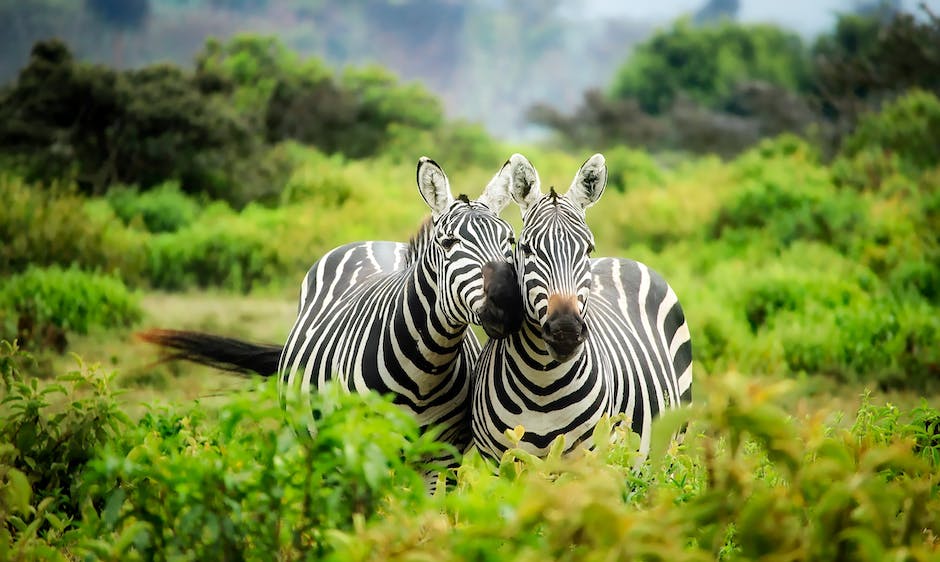Table of Contents
“Arab Leaders in Wildlife Conservation: Protecting Nature, Ensuring Future”
Introduction
Arab Leaders in Wildlife Conservation: Protecting Nature, Ensuring Future
Arab leaders have emerged as prominent figures in the field of wildlife conservation, dedicating their efforts to protect and preserve the natural world. With a deep understanding of the importance of biodiversity and the threats facing it, these leaders have taken significant steps to safeguard wildlife and their habitats. Through their commitment and initiatives, they are not only preserving nature but also ensuring a sustainable future for generations to come.
The Role of Arab Leaders in Wildlife Conservation

Arab Leaders in Wildlife Conservation: Protecting Nature, Ensuring Future
The Arab world is home to a rich and diverse array of wildlife, from the majestic Arabian oryx to the elusive Arabian leopard. However, rapid urbanization, climate change, and unsustainable practices have posed significant threats to these precious species and their habitats. In response, Arab leaders have taken on a crucial role in wildlife conservation, recognizing the importance of protecting nature for the well-being of their countries and future generations.
One of the key ways Arab leaders have contributed to wildlife conservation is through the establishment of protected areas. These areas serve as havens for endangered species and help preserve their natural habitats. For example, the United Arab Emirates (UAE) has created the Arabian Oryx Sanctuary, a vast expanse of land dedicated to the conservation of the Arabian oryx. This initiative has not only helped increase the population of this iconic species but has also raised awareness about the importance of preserving wildlife.
In addition to protected areas, Arab leaders have also implemented strict regulations and laws to combat illegal wildlife trade. This illicit trade has been a major driver of species decline, with animals being poached and sold for their skins, horns, and other body parts. Arab countries, such as Saudi Arabia and Qatar, have enacted legislation to crack down on this illegal activity, imposing heavy penalties on those involved. By doing so, they are sending a clear message that wildlife trafficking will not be tolerated, and are taking concrete steps to protect their natural heritage.
Furthermore, Arab leaders have recognized the importance of international collaboration in wildlife conservation. They have actively participated in global initiatives and conventions, such as the Convention on International Trade in Endangered Species of Wild Fauna and Flora (CITES), to address the challenges facing wildlife. Through these platforms, Arab leaders have shared their experiences, exchanged knowledge, and worked together with other nations to develop effective strategies for conservation. This collaboration has not only strengthened regional efforts but has also contributed to the global conservation agenda.
Education and awareness have also been key priorities for Arab leaders in wildlife conservation. They understand that fostering a sense of environmental stewardship among their citizens is crucial for long-term sustainability. Arab countries have invested in educational programs, public campaigns, and community engagement initiatives to raise awareness about the importance of wildlife conservation. By instilling a sense of pride and responsibility towards their natural heritage, Arab leaders are ensuring that future generations will continue to protect and preserve their wildlife.
Moreover, Arab leaders have recognized the potential of ecotourism as a sustainable source of income that can benefit both local communities and wildlife conservation efforts. Countries like Jordan and Oman have embraced this concept, promoting responsible tourism that allows visitors to experience the beauty of their natural landscapes while supporting local economies. By diversifying their economies through ecotourism, Arab leaders are creating incentives for communities to actively participate in wildlife conservation, as they directly benefit from the preservation of their natural resources.
In conclusion, Arab leaders have played a crucial role in wildlife conservation, recognizing the importance of protecting nature for the well-being of their countries and future generations. Through the establishment of protected areas, strict regulations against illegal wildlife trade, international collaboration, education, and the promotion of ecotourism, they have taken concrete steps to safeguard their natural heritage. By doing so, Arab leaders are not only ensuring the survival of their iconic species but are also contributing to the global effort to protect and preserve wildlife for generations to come.
Conservation Efforts by Arab Leaders: Success Stories
Arab Leaders in Wildlife Conservation: Protecting Nature, Ensuring Future
Conservation efforts by Arab leaders have been instrumental in protecting and preserving the rich biodiversity of the region. These leaders have recognized the importance of safeguarding their natural heritage and have implemented various initiatives to ensure the long-term sustainability of their ecosystems. Through their commitment and dedication, they have not only protected endangered species but also created a legacy for future generations.
One notable success story is the Arabian Oryx reintroduction program in the United Arab Emirates (UAE). The Arabian Oryx, a magnificent antelope species, was once on the brink of extinction. However, thanks to the efforts of Sheikh Zayed bin Sultan Al Nahyan, the founding father of the UAE, the species was successfully reintroduced into the wild. Sheikh Zayed recognized the cultural and ecological significance of the Arabian Oryx and established protected areas where the animals could thrive. Today, the Arabian Oryx population has rebounded, and the species has been downgraded from critically endangered to vulnerable.
Another remarkable conservation effort is the establishment of the Dana Biosphere Reserve in Jordan. King Abdullah II recognized the importance of preserving the unique biodiversity of the region and designated the Dana Biosphere Reserve as a protected area. This reserve is home to a wide range of plant and animal species, including the endangered Nubian ibex and Syrian wolf. Through sustainable tourism and community involvement, the reserve has not only protected these species but also provided economic opportunities for local communities. The success of the Dana Biosphere Reserve has inspired other Arab countries to establish similar protected areas.
In Saudi Arabia, Crown Prince Mohammed bin Salman has taken significant steps towards wildlife conservation. The crown prince launched the Saudi Green Initiative, which aims to protect 30% of the country’s land area by 2030. This ambitious initiative includes the establishment of national parks, nature reserves, and protected areas. By preserving these areas, Saudi Arabia aims to safeguard its unique ecosystems and promote sustainable development. The Saudi Green Initiative also emphasizes the importance of international cooperation in addressing global environmental challenges.
The Sultanate of Oman has also made significant strides in wildlife conservation. Sultan Qaboos bin Said recognized the need to protect the Arabian leopard, a critically endangered species. Under his leadership, the Arabian Leopard Sanctuary was established in the Dhofar Mountains. This sanctuary provides a safe haven for the leopards and supports research and conservation efforts. The Sultanate of Oman has also implemented strict regulations to combat illegal wildlife trade, further contributing to the protection of endangered species.
These success stories highlight the commitment of Arab leaders to wildlife conservation. Their efforts have not only protected endangered species but also contributed to the overall health and resilience of their ecosystems. By establishing protected areas, implementing sustainable practices, and promoting community involvement, these leaders have set an example for the rest of the world.
However, challenges still remain. Climate change, habitat loss, and illegal wildlife trade continue to threaten the region’s biodiversity. Arab leaders must continue to collaborate with international organizations and invest in research and conservation efforts. By addressing these challenges head-on, they can ensure a sustainable future for their natural heritage.
In conclusion, Arab leaders have played a crucial role in wildlife conservation, protecting their natural heritage and ensuring a sustainable future. Through their efforts, endangered species have been saved from the brink of extinction, and protected areas have been established to preserve biodiversity. However, the work is far from over, and ongoing collaboration and investment are needed to address the remaining challenges. By continuing to prioritize conservation, Arab leaders can inspire others and create a lasting legacy for generations to come.
Challenges Faced by Arab Leaders in Wildlife Conservation
Challenges Faced by Arab Leaders in Wildlife Conservation
Wildlife conservation is a pressing issue worldwide, and Arab leaders have been at the forefront of efforts to protect and preserve nature in their respective countries. However, they face numerous challenges in their pursuit of this noble cause. This article will explore some of the key challenges faced by Arab leaders in wildlife conservation and the strategies they employ to overcome them.
One of the primary challenges faced by Arab leaders in wildlife conservation is the rapid urbanization and industrialization that has taken place in many Arab countries. As cities expand and industries grow, natural habitats are being destroyed, leading to the loss of biodiversity. Arab leaders must find a delicate balance between economic development and environmental preservation, ensuring that the needs of both humans and wildlife are met.
Another challenge is the illegal wildlife trade, which poses a significant threat to the survival of many species. Arab countries, due to their geographical location, serve as transit points for the illegal trade of wildlife products. Arab leaders must work tirelessly to combat this illicit trade by strengthening law enforcement, enhancing border control measures, and raising awareness among their citizens about the devastating consequences of wildlife trafficking.
Climate change is yet another challenge that Arab leaders must grapple with in their efforts to conserve wildlife. Rising temperatures, changing rainfall patterns, and extreme weather events have a profound impact on ecosystems and the species that inhabit them. Arab leaders are increasingly recognizing the importance of climate change mitigation and adaptation strategies in safeguarding biodiversity. They are investing in renewable energy sources, promoting sustainable agriculture practices, and implementing measures to reduce greenhouse gas emissions.
In addition to these external challenges, Arab leaders also face internal obstacles in their pursuit of wildlife conservation. Limited financial resources and competing priorities often hinder their ability to allocate sufficient funds to conservation efforts. However, many Arab countries have recognized the economic value of their natural resources and are exploring innovative financing mechanisms, such as public-private partnerships and ecotourism, to generate revenue for conservation initiatives.
Furthermore, the lack of public awareness and education about the importance of wildlife conservation poses a significant challenge. Arab leaders are working to address this issue by incorporating environmental education into school curricula, organizing awareness campaigns, and engaging local communities in conservation activities. By fostering a sense of ownership and responsibility among their citizens, Arab leaders hope to create a culture of conservation that will endure for generations to come.
Despite these challenges, Arab leaders have made significant strides in wildlife conservation. They have established protected areas, implemented legislation to protect endangered species, and collaborated with international organizations to share knowledge and best practices. Arab leaders are also actively involved in regional and global initiatives, such as the Convention on Biological Diversity and the United Nations Sustainable Development Goals, which provide a framework for international cooperation in conservation efforts.
In conclusion, Arab leaders face numerous challenges in their pursuit of wildlife conservation. From rapid urbanization and illegal wildlife trade to climate change and limited resources, the obstacles are formidable. However, through their commitment, innovation, and collaboration, Arab leaders are making significant progress in protecting nature and ensuring a sustainable future for both humans and wildlife. Their efforts serve as an inspiration to the global community and a testament to the power of leadership in safeguarding our planet’s precious biodiversity.
Future Perspectives: Arab Leaders’ Contributions to Wildlife Conservation
Arab Leaders in Wildlife Conservation: Protecting Nature, Ensuring Future
Future Perspectives: Arab Leaders’ Contributions to Wildlife Conservation
Wildlife conservation is a global concern, and Arab leaders have been making significant contributions to this cause. Their efforts not only protect the rich biodiversity of the region but also ensure a sustainable future for generations to come. By implementing innovative strategies and collaborating with international organizations, Arab leaders are setting an example for the rest of the world.
One of the key areas where Arab leaders have made a significant impact is in the protection of endangered species. The Arabian oryx, for example, was on the brink of extinction in the 1970s. However, thanks to the efforts of Arab leaders, this majestic creature has made a remarkable comeback. Through captive breeding programs and reintroduction into the wild, the Arabian oryx population has increased significantly, showcasing the success of Arab leaders’ conservation initiatives.
In addition to protecting individual species, Arab leaders have also focused on preserving and restoring natural habitats. The Arabian Peninsula is home to diverse ecosystems, including deserts, mountains, and coastal areas. Arab leaders have recognized the importance of these habitats in maintaining ecological balance and have taken steps to protect them. By establishing protected areas and implementing strict regulations on land use, they have ensured the preservation of these unique environments.
Furthermore, Arab leaders have been at the forefront of promoting sustainable practices in wildlife conservation. They understand that economic development and conservation can go hand in hand. By investing in eco-tourism and sustainable agriculture, Arab leaders have created opportunities for local communities to benefit from wildlife conservation efforts. This approach not only helps in preserving natural resources but also provides economic stability to the region.
Collaboration with international organizations has been a key aspect of Arab leaders’ conservation efforts. Recognizing the global nature of wildlife conservation, Arab leaders have actively engaged with organizations such as the International Union for Conservation of Nature (IUCN) and the World Wildlife Fund (WWF). Through these partnerships, they have gained access to expertise, funding, and technical support, enabling them to implement effective conservation strategies.
Arab leaders have also been instrumental in raising awareness about the importance of wildlife conservation. They have used their influence and platforms to educate the public and promote a culture of environmental responsibility. By organizing conferences, workshops, and awareness campaigns, they have encouraged individuals to take action and contribute to the conservation cause. This grassroots approach has resulted in increased public support and engagement in wildlife conservation efforts.
Looking ahead, Arab leaders are committed to furthering their contributions to wildlife conservation. They recognize that the challenges facing the region, such as climate change and habitat loss, require continuous efforts. Arab leaders are investing in research and technology to develop innovative solutions to these challenges. By harnessing the power of science and technology, they aim to find sustainable solutions that will protect wildlife and their habitats for future generations.
In conclusion, Arab leaders have emerged as champions of wildlife conservation, making significant contributions to protect nature and ensure a sustainable future. Through their efforts in protecting endangered species, preserving natural habitats, promoting sustainable practices, collaborating with international organizations, and raising awareness, they have set an example for the rest of the world. As they continue to invest in research and technology, Arab leaders are poised to make even greater strides in wildlife conservation, leaving a lasting legacy for generations to come.
Q&A
1. What is the main focus of Arab Leaders in Wildlife Conservation?
The main focus of Arab Leaders in Wildlife Conservation is to protect nature and ensure a sustainable future for wildlife.
2. Who are the Arab Leaders in Wildlife Conservation?
The Arab Leaders in Wildlife Conservation are individuals or organizations from Arab countries who actively work towards protecting wildlife and their habitats.
3. What are the goals of Arab Leaders in Wildlife Conservation?
The goals of Arab Leaders in Wildlife Conservation include promoting conservation efforts, raising awareness about the importance of wildlife, implementing sustainable practices, and collaborating with international organizations.
4. How do Arab Leaders in Wildlife Conservation contribute to protecting nature?
Arab Leaders in Wildlife Conservation contribute to protecting nature by implementing conservation projects, establishing protected areas, conducting research, advocating for wildlife protection laws, and educating communities about the importance of preserving biodiversity.
Conclusion
In conclusion, Arab leaders have made significant efforts in wildlife conservation, recognizing the importance of protecting nature for the future. Through various initiatives, policies, and collaborations, they have demonstrated a commitment to preserving biodiversity, promoting sustainable practices, and raising awareness about the importance of wildlife conservation. These efforts not only safeguard the region’s unique ecosystems and species but also contribute to global conservation efforts. By continuing to prioritize wildlife conservation, Arab leaders are playing a crucial role in ensuring a sustainable and thriving future for both nature and humanity.




